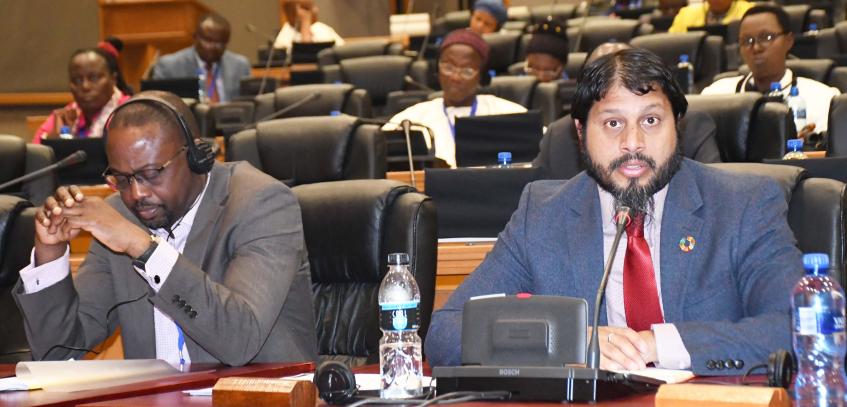Faced with the harsh impacts of the COVID -19 pandemic, many African countries were forced to borrow at an unprecedented scale, and this will likely see these countries defaulting on repayments thereby locking them in a vicious cycle.
This came to the fore at a joint meeting of the Pan-African Parliament (PAP) Committee on Justice and Human Rights, Committee on Rules, Discipline and Privileges, Committee on Audit and Public Accounts, Committee on Gender, Family, Youth and People with Disability, and the Committee on Health, Labour and Social Affairs. The PAP Permanent Committees are meeting in Midrand South Africa under the theme “Building resilience in nutrition on the African continent: Accelerate the human capital, social and economic development”.
Speaking at the meeting, Jason Rozario Braganza, African Forum and Network on Debt and Development (AFRODAD) Executive Director told the Parliamentarian that COVID-19 has delivered a blow to the global economy at a large scale as industries were forced to close and workers laid off. Faced with this crisis many governments were forced to borrow yet they are in no position to accumulate any more debt.
“It is important to realise that we are in a very pivotal moment with regards to public debt. Even before the COVID-19 pandemic, some low-income countries were already spending more to service their international debts than on strengthening their local health and education systems. Africa needs to move towards self-reliance in vaccine production and also interrogate whose agenda we are implementing. It is important and incumbent on us to support Agenda 2063 because it cements the urgency of the African continent in the mobilization of its own resources,” said Jason Rozario Braganza.
A briefing document prepared by a coalition of civic society organizations that include Open Society Foundations, Christian Aid, AFRODAD and Atrocities Watch Africa says over the next two or three years, a number of low-income countries are likely to default on their loans, and many lower and middle-income countries will take on unsustainable additional debt loads that will continue to thwart their access to capital markets. This will also result in these countries decreasing their funding for essential public services and climate action.
Hon Jean-Marie Nibirantije, Chairperson of the Justice and Human Rights Committee said it is key for Africa to move from the debt trap and channel its resources towards improving health care and education systems.
“It is high time we considered policies that will help us get solutions to fighting debt as Africa. Our continent has more pressing issues that require financial resources and we cannot continue to spend billions on debt servicing,” said Hon Jean-Marie Nibirantije.
-Ends-








